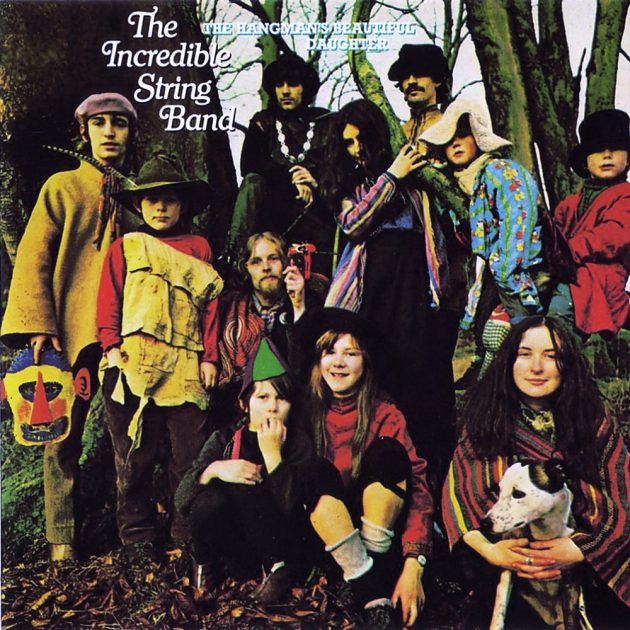
The Incredible String Band
The Hangman’s Beautiful Daughter
[Elektra; 1968]
The Incredible String Band were a group whose work was so wildly eclectic and strange that it would take decades before they were given their proper acclaim. Equal parts weirdo-folkers and psych-experimentalists, their music felt wonderfully spontaneous and unadorned with studio polish. Their 1968 record, The Hangman’s Beautiful Daughter, encapsulates this rhythmic ethos better than almost any of their other releases. Wrapped in elongated folk mutations and psychedelic imagery, the songs possessed a pastoral fluidity, developing a bewitched fascination with the complexities of the natural world around them. Many years ahead of the freak-folk scene of the early aughts, The Incredible String Band were revelling in the inspired lunacy of these sounds before anyone even knew what to do with them.
– Joshua Pickard

Eminem
Relapse
[Aftermath; 2009]
Took some goading on behalf of a certain editor, but I finally started listening to Eminem’s Relapse – the album which the rapper was already dissing a year later when he dropped the more-commercially-appealing but far-less-daring Recovery. Like his idol Redman on Dare Iz A Darkside, Marshall Mathers uses a doctor character to guide us into a word of utter hell, regardless of whether said medical professional has Dominic West’s charming English accent. Way past earning a spot in the rap hall-of-fame and winning an Oscar, Em wasn’t going to just spoon-feed his fans a carbon copy of one of his most-acclaimed albums. Relapse could never be mistaken for anything but Eminem, but the terror and tension are pitched up to such great levels that it’s hard to blame him for going easier on us with the follow-up. It’s not going to be in regular rotation, due to how grim it is, but if I’m in the mood for amazing Dr. Dre beats and being shrouded in lyrical darkness, I know where to turn.
– Brody Kenny
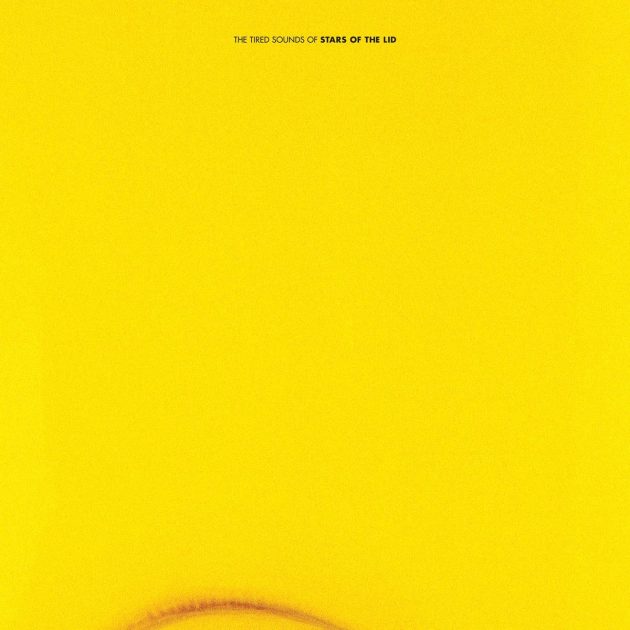
Stars of the Lid
The Tired Sounds of Stars of the Lid
[Kranky; 2001]
Wonderfully sombre, eternally majestic and incessantly melancholic with a hint of undying optimism – these are traits that I share with Stars of the Lid. The duo of Adam Wiltzie and Brian McBride produce neo-classical ambient gems that are simultaneously soporific and captivating. This, their album from 2001, is currently outdoing William Basinski’s Disintegration Loops as my go-to ambient masterpiece during lockdown, as there is a resonating feeing of hope on The Tired Sounds... that is needed.
Song titles such as “The Lonely People (Are Getting Lonelier)”, “Ballad of Distances” and “Requiem for Dying Mothers” are eerily prescient for the current shit-storm we find ourselves in, yet it is the stoic attitude and the introspective stillness of the album that reaps rewards for the listener. Meditative, pensive and contemplative, The Tired Sounds of Stars of the Lid offers a space to reflect, and possibly reconstruct a sense of self previously flattened by the rush of life in late-capitalism. Breathe.
– Todd Dedman

Wax Fang
The Astronaut
[Don’t Panic; 2014]
My Tale: I was due to perform in a play in late March, but, like pretty much everything else in the world, it was cancelled. It was a psychological space story called Castor 11, and in the weeks before the performance (before the world caught up with the current reality) I found myself circling on The Astronaut over and over as I learned my lines. It’s an obvious musical accompaniment, but this concept album is no less fitting because of that. Both the main character of the play and the album struggle with an identity crisis, become infused with space around them, and spend time gazing at the beautiful, horrifying, and dark emptiness that surrounds them in space.
In an efficient 40 minutes Wax Fang create a undulating soundscape: drums bellow and flurry like rocket engines starting up, guitars thrash like an astronaut fighting to get out of their spacesuit, and at one point a saxophone wails out into a void of reverberation like an unheard scream. On paper it sounds a little corny, but this a thrilling miniature rock opera that ebbs and flows like a living, breathing behemoth. Come the final act of the album – “Part 3” – everything sounds at stake: the album’s main character is fusing with the void around them (“I can’t tell where my skin ends / And the space around me, it begins”) and their spaceship sounds like it’s hurtling to its doom. “I miss my wife and I miss my children,” they shriek over and over in the song’s final moments. What fate befalls them? Like with Castor 11 (which I still hope to be able to perform in one day #hope), the ending is open to interpretation, but best experienced in person to make up your own mind. Put on The Astronaut and take a journey away from the world around you and head to stars for 40 minutes instead.
– Ray Finlayson
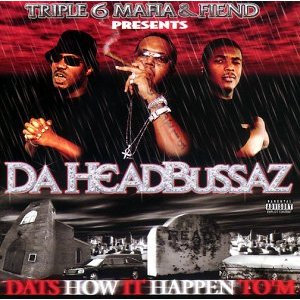
Da Headbussaz
Dat’s How It Happen to’M
[Hypnotize Minds; 2002]
For a genre so dependent on collaboration, hip hop is depressingly resistant to full album0length link ups. Whether it’s for fear of brand damage, pride, clashing personalities, or something else, events such as Offset and 21 Savage’s Without Warning are are all too rare. This very scarcity makes Dat’s How It Happen to’M valuable.
In 2002, former No Limit soldier Fiend hooked up with Three 6 Mafia’s DJ Paul and Juicy J for for an LP of just what all three do best. That signature eerie Three 6 production is on full display, the likes of “Powder Cake” will have you fearfully stomping around your room in no time. This quarantine ain’t easy. Sometimes we need to release something that appeals to our baser instincts. A massively undervalued and underheard meeting of rap greats.
– Chase McMullen

Vic Chesnutt
Is the Actor Happy?
[Texas Hotel; 1995]
One of the greatest lyricists of the last 100 years, Vic Chesnutt was a man whose bleak rural visions and heartbreaking prose would inspire the creation of over a dozen records that spoke to our collective feelings of mortality, desperation and a desire to be more than what the confines of our physical bodies allowed us. He never released a record devoid of his own dark humor and unimaginable wit, but 1995’s Is the Actor Happy? might just be the one which stops my heart every single time I hear it. I’m left shaken and dizzied by its experiences and revelations. A rambling trip through countless Southern folk histories, the songs freed Vic from the imitations of his wheelchair, giving him room to roam through these achingly beautiful environments where you’d meet characters unlike anyone else you might have come across before. With his self-inflicted death in 2009, a wholly unique voice was taken from us and hearts broke the world over, leaving the faint wisp of his Georgia twang echoing in our heads.
– Joshua Pickard

Kishi Bashi
Omoiyari
[Joyful Noise; 2019]
Like you, I remember the old days when we could do stuff like hang out with friends and go for a walk on a whim. We’ll get back to those times, but for now those memories are golden and important to hold onto. Kishi Bashi’s fourth album, Omoiyari, is my memory, of walking to and from work through the park on late summer days. But this music is so serene and wonderful it can very easily be your memory too.
The glistening guitars and bright vocal melodies of “F Delano” and “Penny Rabbit and Summer Bear” will bring the sunny season into your ears, while the soaring declarations of “I am in love with you” on “Summer of ’42” are there to help you soar away from any worries you have. This album is a masterpiece, a fusion of Americana, classical, and Bashi’s own take on how to utilise a violin and a looping pedal. Even the minor-key tracks are divine, from the memory-infused delicacy of “Theme For Jerome” to the operatic flood of layers on “Violin Tsunami”. When the folk-shanty send off “Annie, Heart Thief of the Sea” swings around at the end of the album it’s impossible to not want to sing along and hit play on the record. And why not? We’ve all got the time we need to relive this memory of summer.
– Ray Finlayson
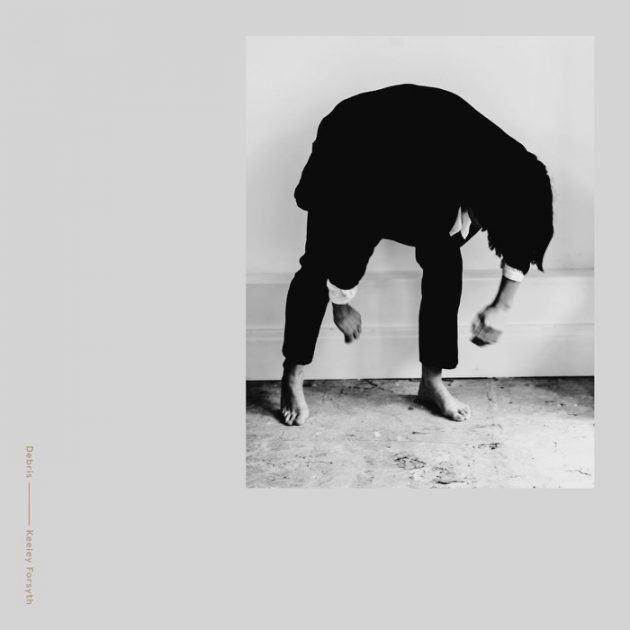
Keeley Forsyth
Debris
[The Leaf Label; 2020]
My absolute favourite album of 2020 so far, and a perfect album for every mood that this lockdown brings. Forsyth is best known as an actress in some British TV shows that I’ve never watched, and I don’t want to watch them now that I know this version of her. It would be like seeing David Sylvian asking for a pint of Churchill’s in the Queen Vic (from EastEnders, for all you non-Anglophiles out there).
I digress. Debris is for those moments of lockdown when you start to wonder what’s going on, what day it is, and for when you need a soundtrack for staring out of the window at nobody and nothing. It is both despairing and desolate, yet with an undoubted beauty in its fragile sparseness that somehow offers a degree of optimism. You feel life exuding from every note and pause. Forsyth’s voice is a wonder, and she twists her delivery at moments that result in delight in the smallest of things. The rolled ‘r’ of the word ‘breathing’ on “It’s Raining”, the drained vibrato of “Lost” and the wilting refrain that opens “Large Oak” all bring shivers down the spine and elevate Forsyth above most others. She has been compared to Nico (thankfully for her voice rather than her racism) and Scott Walker (no, just no!) but quite frankly such comparisons don’t work as this is an album of unique splendour.
– Todd Dedman

Rockpile
Seconds of Pleasure
[Columbia; 1980]
British rock band Rockpile had a very interesting tenancy, recording four studio albums before disbanding, though only one was actually released under the Rockpile moniker. Built around the talents of guitarist Dave Edmunds, bassist Nick Lowe, guitarist Billy Bremner and drummer Terry Williams, the band specialized in an odd confluence of sounds, working through bits of pub rock, rockabilly, new wave and power pop in just these few records. The first two, Tracks on Wax 4 and Repeat When Necessary, were released as Dave Edmunds solo records, while their third, Labor of Lust, was shared as a Nick Lowe solo vehicle. And while I do adore Labor of Lust, it’s their fourth album, Seconds of Pleasure (the only official Rockpile record), which holds due claim to it being their best offering. Buzzing with power pop hooks and defiantly catchy melodies, it possesses a singular pop vision, even when meddling in pub rock and rockabilly truancies.
– Joshua Pickard

Bruxa Maria
The Maddening
[Hominid Sounds; 2020]
Super heavy, super intense, with splendid lo-fi production that hits all of the right buttons, The Maddening sees Bruxa Maria fulfil their potential as an important noise rock band. They play a dizzying racket of thrash punk with harsh guitars, throbbing bass and ear-shattering drums, all topped off with Gill Dread’s insanely cathartic vocals. “Brutal Attack” is exactly that – a soaring, senses-depriving adrenaline charge of vitriol and assertiveness, whilst the title track (and album opener) comes out of the gates like a massively pissed off Melt Banana. It’s a record for those tense times. It is primal scream therapy by proxy, when you want someone to vent the pent up frustration that you can’t for fear of the neighbours considering an intervention. Look, we are all going through the ringer with this situation, sometimes some peaceful music serves a purpose whereas others you need an absolutely raging bull of an album to smash up your sensibilities and reassure you of the sheer brutality of it all. “Lovely stuff” – not my words, the words of Shakin’ Stevens.
– Todd Dedman
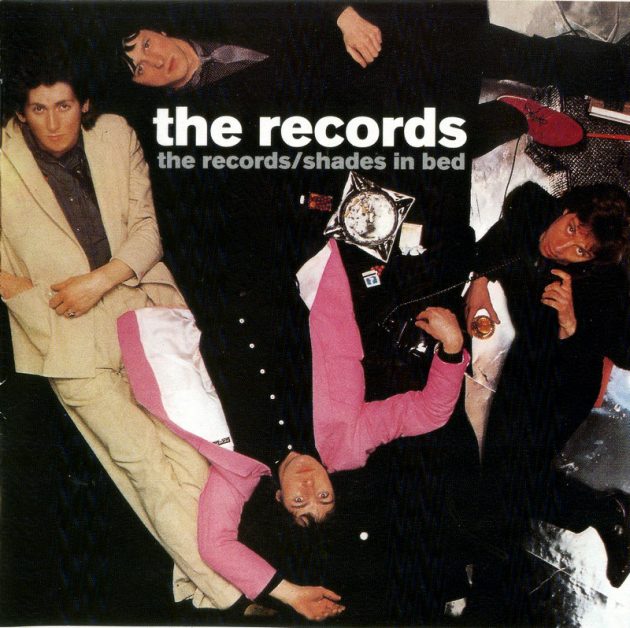
The Records
Shades in Bed
[Virgin; 1979]
A British power pop band best known for their hit single “Starry Eyes”, The Records have become a footnote in a much larger story – that being the punk scene in the UK in the late 70s. What was a power pop band to do when people were clamoring for The Clash or Buzzcocks (whose music, I should note, isn’t that far removed from pop)? Born from the ruins of pub rock outfit the Kursaal Flyers, the band would draw inspiration from bands like The Kinks and Big Star, artists who combined the giddy euphoria of pop music with darker melodic undertones. Their debut record, 1979’s Shades in Bed (later retitled to just The Records for its US release), was an energetic and mesmerizing trip through the fuzzy textures of garage pop, aided and abetted by brief detours through punk-lite landscapes which would come to influence a generation of musicians rightfully obsessed with these sounds.
– Joshua Pickard
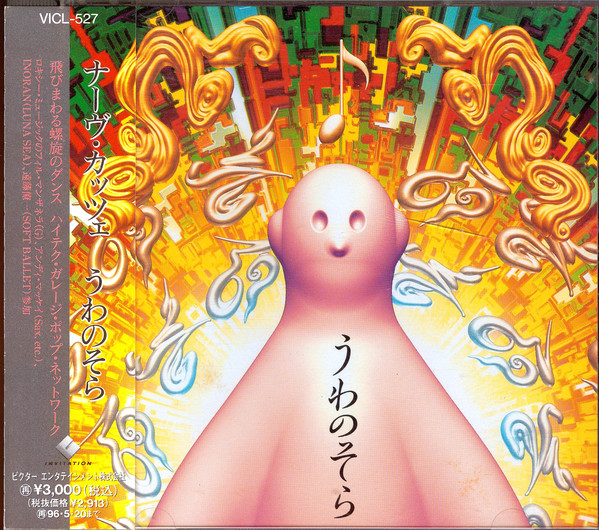
Nav Katze
Nobody Home (うわのそら, Uwa no Sora)
[Invitation; 1994]
I’ve stopped fighting my changes in music listening every time the weather changes. The cool temperatures and fresh air of fall send me to folk, country, and 70s songwriters, while the ceiling fans, hot window glass, and recycled air conditioning of spring send me into the embrace of classic new wave, synth-pop, 90’s fuzz, and J-pop. This illogical cycle bothered me at first—how does music convey temperature, anyway?—but what was once a conundrum has become a welcome nostalgia. This year’s season change feels like a taunt on all of us cooped up inside on our video calls, but the seasonal music change has hit me just as hard anyway. Maybe I need the old friend.
Nav Katze has been an annually fruitful band who exemplifies my spring music tradition. Their penultimate album, Nobody Home (うわのそら, Uwa no Sora), is a culmination of their debut album’s dream pop sound with a few 1994 touches, like a big breakbeat-like percussion (courtesy of Asa-Chang) and a shoegaze-like focus on texture. Both are showed off on “Cherry”, a cathartic, delirious gem with its pounding driving drums and a joyous blaring saxophone from—surprise!—Roxy Music’s Andy Mackay (and Phil Manzanera on guitar). Not long after, the listener is treated to an inexplicable Boston cover, “More Than a Feeling”, with enough disaffected 90s cool to (debatably) justify its inclusion. The back half, starting with “Wild Horse”, gives more room to Nav Katze’s distinct melodic style and calmer moments without losing the percussive drive that carries it all the way up to the dreamy closer of “Change”.
In addition to the good music, Nav Katze presents an enigma: two songs from this album have Aphex Twin remixes. Why? And not just him, Nav Katze was remixed by the biggest names in 90s IDM, including Autechre, The Black Dog, Seefeel, and μ-Ziq. The remix album, Never Mind the Distortion, was such a success that the band let a new producer drastically steer their sound in a new techno and IDM-influenced direction, in what ends up feeling like reversed cause-and-effect. The album, Gentle & Elegance, works so well it proves those IDM artists were correct to hear kindred talent from such a different background of music. While it was sadly their last, it capped a discography I know I’ll continue to revisit as the warm temperatures guide me, through future years hopefully much better than this one.
– Josh Sand

